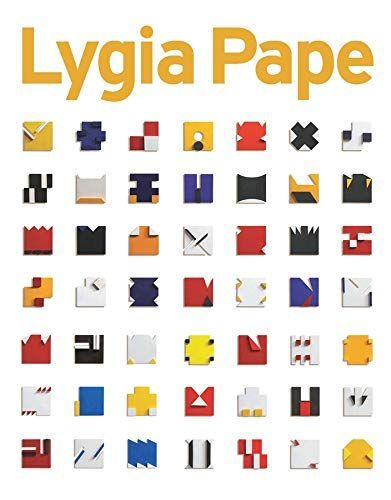
Lygia Pape A Multitude of Forms
Lygia Pape (1927–2004) was one of the most acclaimed and influential Brazilian artists of the twentieth century. As a prominent member of a generation of artists, architects, and designers who embraced the optimistic and constructive spirit of postwar Brazil, she is particularly known for her participation in the experimental art movement Neoconcretism, which sought to rework the legacy of European avant-garde abstraction to suit a new cultural context. Beyond the specific aims of Neoconcretism, however, Pape engaged with a wide range of media painting, drawing, poetry, graphic design and photography, film and performance—constantly experimenting in a quest to confront the canonical and discover unexplored territories in modern art. Following a coup d’etat in 1964, when the establishment of an authoritarian regime shattered dreams of shared prosperity in Brazil, Pape continued to pursue her art against difficult odds. The streets of Rio de Janeiro became her ultimate source of inspiration, as she created participatory works that questioned the space between artist and viewer and the social context of art itself. p.p1 {margin: 0.0px 0.0px 0.0px 0.0px; font: 14.0px Verdana} This beautifully illustrated publication accompanies the first major exhibition in the United States devoted to the work of Lygia Pape. Featuring essays by art historians in both North and South America, as well as two previously untranslated interviews with the artist and an illustrated chronology, Lygia Pape is a testament to the artist’s lasting importance to the modern art and culture of Latin America and to her position as a major figure of the international avant-garde.